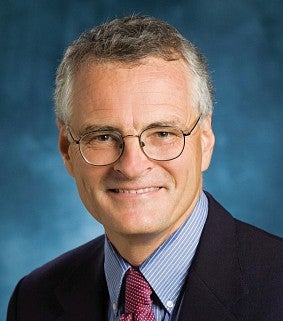Major: Biomathematics
Richard G. Cornell Distinguished University Professor of Biostatistics
University of Michigan at Ann Arbor School of Public Health
University of Michigan Center for Statistical Genetics and Genome Science Training Program

From the time I began to think about college, I assumed I would be a math major. I always liked math and was good at math, I have two uncles who are statisticians, and math seemed the obvious choice. In my first two years at Oregon, everything went according to plan: I enjoyed classes, college life, and all the amazing opportunities that a first-rate undergraduate education provides. But early in my junior year, I began to wonder what would come next. What would I do with my math degree? I decided a career in pure mathematics was not for me, feeling that even if I managed to do something wonderful, I could tell the six people in the world who would understand what I had done, and then try to do it all over again. Pretty simplistic, but I was only 19 years old.
I spent the next two years completing my math degree and honors thesis, and casting about for what might come next. I decided to go to law school; I was active in Oregon politics, and I liked the idea of combining law and public service. However, a first key moment came early in my senior year, when Clark Honors College’s then director, Ed Diller, suggested I apply for a Fulbright Scholarship. While I had heard of the Fulbright Program, I had never imagined myself as qualified. Thanks to Ed, I applied for and was awarded the scholarship. My plan was to spend the year in Freiburg, Germany, and then return for law school.
The winter and spring terms of my senior year, I volunteered in the lab of ecologists Bill Bradshaw and Chris Holzapfel, doing statistical analysis of their studies on pitcher plant mosquitos. A second key moment came while discussing my career plans with Bill; he suggested, “Mike, you should go to graduate school in mathematical biology.” I replied, “But Bill, I haven’t had a class in biology since the seventh grade.” And he responded, “Who cares?” It took a few months and a semester in Germany to decide I loved math too much to give it up, and so eventually I agreed. I spent the rest of my time in Germany studying biology and applying to graduate schools, and enrolled the next fall in the biomathematics department at UCLA. There, I augmented my undergraduate training with additional courses in math and science, including a lot of biology. I began to focus on statistical human genetics, with the goal to better understand the genetic basis of human disease. Thirty-five years later, this subject still fascinates me, and my students, colleagues, and I have together identified hundreds of locations in the human genome that play a role in a wide range of human diseases and traits.
The CHC provided me all the small-college benefits of personalized mentoring, and all the opportunities only a large state school can offer. My undergraduate education was broad and deep, with my major courses in mathematics, computer science, and statistics complemented by courses with subjects like the history of ideas, Europe since 1789, and the novels of Kurt Vonnegut. This broad liberal arts education taught me to write, to communicate, and to think critically, skills important in any field, and as essential to a scientist as our own disciplinary knowledge.
Michael Boehnke, PhD, is Richard G. Cornell Distinguished University Professor of Biostatistics, University of Michigan at Ann Arbor School of Public Health, and director, University of Michigan Center for Statistical Genetics and Genome Science Training Program.
